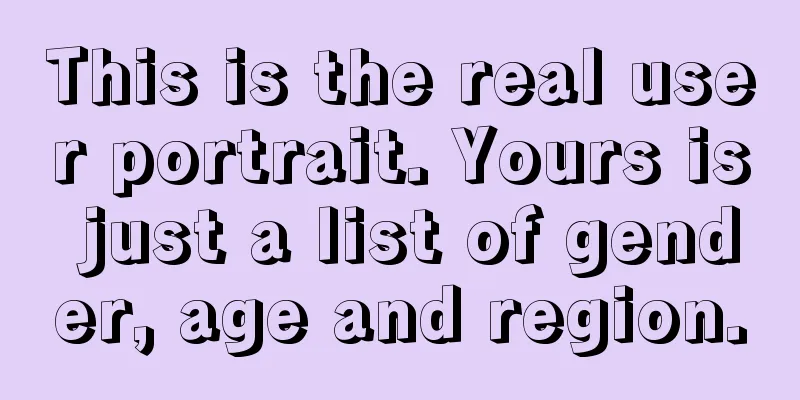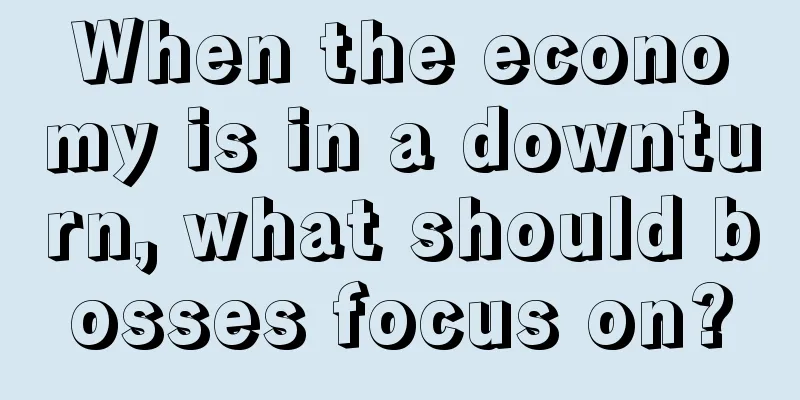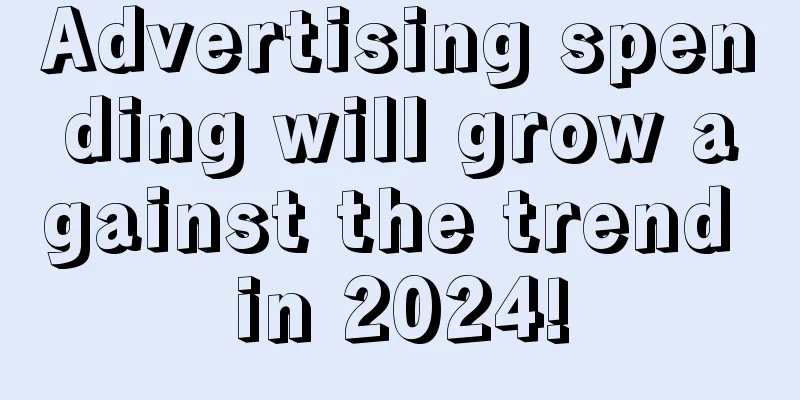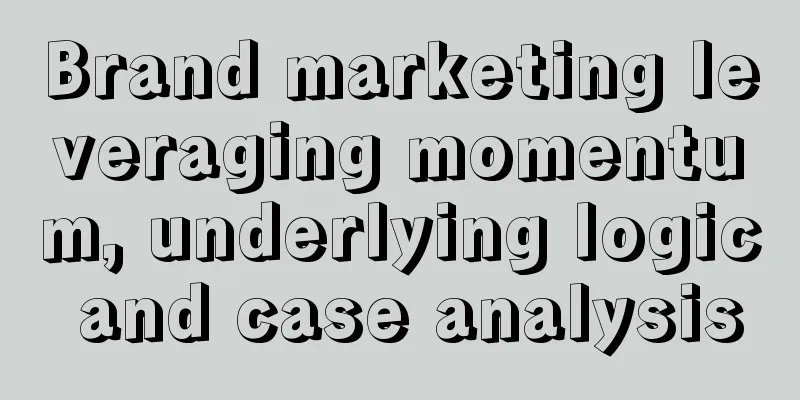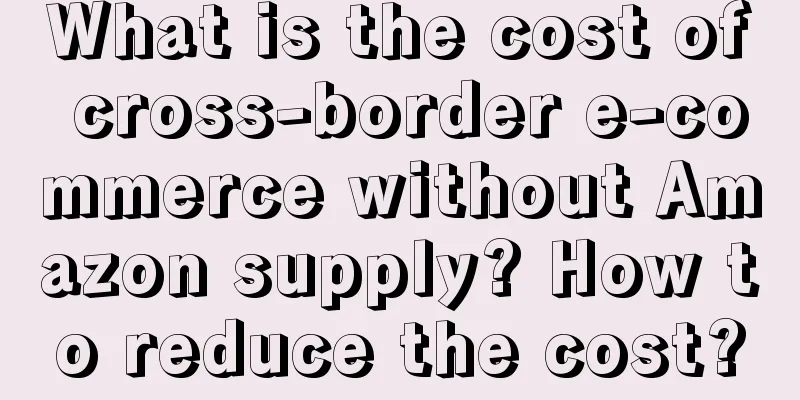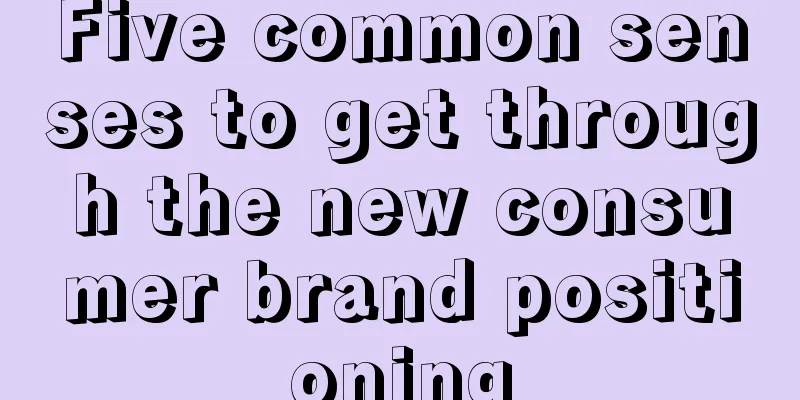Why shopping makes people anxious

There was a report last year about a 41-year-old Ms. Sun from Zhejiang who loved spending money on shopping and bought hundreds of thousands of items every month. She said that she "couldn't control herself...I would feel annoyed if I didn't buy things." From the description, it seems that this lady relieves her anxiety by shopping. In 2013, a Huffington Post poll found that 40% of women and 19% of men said they shop to relieve stress. Shopping can relieve stress and anxiety, which is true for many people. When a person is heartbroken, when a person is unemployed, or when a person has an argument with his or her partner, shopping can help divert attention and relieve sad emotions. In the book "Self-Control", the author analyzes the relationship between women in poor financial conditions and shopping. "Women who are worried about their financial situation will use shopping to relieve their inner anxiety and depression. To the brain, shopping can make her happy, and she will use shopping to relieve the stress caused by debt." This is like when a binge eater feels ashamed about their weight gain or lack of self-control and eats more to soothe themselves. Shopping can relieve anxiety, but this relief is mostly only temporary. After shopping, these people often fall into anxiety again. They find that either the things they bought are not very useful or they spend too much money that they shouldn't have. This is like a person who tries to quit smoking and always wants to start smoking again. When he doesn't smoke, he feels abnormal anxiety due to the addiction. Once he smokes, he regrets his relapse and falls into anxiety again. They are in a cycle of anxiety relief and anxiety. So, in the final analysis, shopping does not reduce anxiety, but instead increases it. In fact, shopping is an important behavior of people in today's market economy. It not only brings anxiety to people after shopping, but also creates various anxieties before shopping to promote your shopping behavior. 1. Anxiety about stockpilingShopping and stockpiling are connected to human dopamine. If there is a dessert on your table, the brain will activate dopamine, and it will say: "Go eat the donut, even if you are not hungry. It will ensure your survival in the future. Who knows when there will be food again?" This dopamine mechanism is of great significance to our ancestors, because most of them lived on the edge of starvation, and eating the food in front of them could ensure their survival for a longer period of time. Dopamine is always focused on getting more, on the future, and one of its important jobs is to act as an early warning system, alerting us to anything that could help us survive in the future. Daniel Lieberman, author of "Greedy Dopamine," said it's "like an old lady who's always buying toilet paper, even if there are a thousand rolls piled up in the pantry. Her attitude is 'You can never have too much toilet paper.'" Especially when the external environment changes, people always like to stock up more goods to gain a sense of security. For example, when the epidemic came, people always rushed to stock up on toilet paper. For example, on Double 11, you always like to stock up on some daily necessities, because you think if you don’t stock up more at this time, you will spend more money in the future. 2. Anxiety about losing money if you don’t buyWhen shopping, merchants often use a sales pitch called "selling at a loss" or "you will lose money if you don't buy it" to explain that their products are the lowest in price. This pitch is very effective, and it puts pressure on people to act immediately: if you don't buy now, you will really lose money. When I was in college, I worked part-time as a salesman for a while. The promotion we often did for home appliances like TVs was that if you spent more than 5,000 (approximately) in the supermarket, you could buy a TV at half price, or a TV with an original price of XX would be discounted for a limited time. Of course, after attracting the consumer's attention, we would often add a sentence to our sales pitch: You'll lose out if you don't buy it today. Once, a young man came to a promotion point to complain. He said that his family already had two TVs. In order to buy a half-price TV, his old man bought more than 5,000 yuan worth of things in the supermarket. As a result, after the TV was moved home, it was placed in the basement and was of no use. The consumer mentality of "you'll lose money if you don't buy" brings people consumption pressure. After all, everyone hopes to make money rather than lose money, even through shopping. The most expensive book on Amazon is called "Atomic Energy: Landolt-Börnstein Science and Technology: Numerical Data and Functional Relationships". The hardcover version of this book originally cost $7,790, while the electronic version cost $6,232. I didn’t expect that so many people bought such an expensive book. There is a comment below that deeply reflects the consumer mentality of “you’ll lose out if you don’t buy it”. “Actually, I have no idea about building a nuclear reactor or something like that. But that's not why I bought the book. The reason is simple. If you buy the Kindle electronic version of this book, you can save a full $1558.00 compared to the original price. $1,558.00! Seriously, when will you ever get the chance to save that much money again? I couldn’t help but buy this book, which is so valuable.” 3. Anxiety about tasting and trying without purchasingWhen we go shopping in supermarkets, we always find that there are many free tastings or trials. Are supermarkets giving customers free things out of kindness? Of course not. There is no free lunch in this world. Free tasting and free trial actually puts pressure on consumers. You have eaten so many things for free, if they are good, you should at least show some appreciation, right? Data shows that when a consumer tastes a product for free in a supermarket, they are more likely to complete the purchase than consumers who have not tasted it. In some cosmetics stores, makeup artists will do makeup for consumers for free. For example, Mao Geping, who has been very popular in the past two years, has free makeup services. Bilibili and Xiaohongshu have many tutorials on how to do free makeup at Mao Geping's counter. The salesgirls do makeup meticulously and seriously, and the makeup they produce makes many people call it a head-changing surgery. Under such circumstances, I'm afraid that no consumer who gets free makeup will go home empty-handed. Of course, even if you are determined not to buy anything, the salesgirl will ask you after you finish putting on your makeup: "You spent so much time putting on your makeup, do you want to buy something to show your support?" Most of the time, people would be embarrassed to answer: No. Giving first and then recycling is a great consumer pressure strategy. 4. Anxiety about the product being bought by someone elseSince the birth of Xiaomi's hunger marketing, this marketing method has been learned and imitated by many brands. The subtext of hunger marketing is that the product is in high demand but the stock is insufficient. If you want to buy it, you have to act quickly, otherwise the product will be snatched away by others. "The product has been bought by someone else", this anxiety dominates many consumers. In the book Fight Anxiety and Accept Yourself, a woman said that she was always worried that if she didn't go shopping, she would miss something. "I always feel like everyone is buying things except me," she said. "So every time there is a sale at the mall, I get really anxious because I feel like if I don't go, I'll miss out on the good prices, and then I'll feel really bad. And I'm always thinking about the discounted clothes. The clothes that fit my body shape very well may be bought by others very quickly, so I have to leave immediately. If I don't leave, I'll be driven crazy by this anxiety." Today, live streaming has become a mainstream way of online shopping. The products sold through live streaming always create a sense of urgency: this product is the lowest price in XX days, and it also comes with XX kinds of gifts. Time is limited, 3, 2, 1, go to the link, hurry up and grab it, otherwise the product will be bought by someone else. The host was still shouting at this time: XX pieces have been sold, and there are XX pieces left. They will not be sold anymore once they are sold out. At this time, your psychological activities are often like this: the quantity of goods is limited, if I don’t buy it, someone else will. Besides, so many people have started to rush to buy the goods, if I still don’t, wouldn’t I be stupid? 5. Anxiety about wanting to buy something but not being able to afford it because someone else has bought itA typical feature of a consumer society is that familiar people will compare the goods they consume, and comparison is a huge force driving consumption. Veblen coined the term "conspicuous consumption" in "The Theory of the Leisure Class". He believed that consumption is a way to keep up with the consumption level of friends and neighbors around them, and to make their friends and neighbors jealous. For people with average income, when they see their high-income friends or colleagues buying big-name products, they will of course feel jealous, but their income is not enough to support them to consume like rich people, which will make them fall into endless anxiety. One action is that they will spend a month's salary or even more to buy a brand-name bag. It is estimated (Chadha and Husband, 2006) that 60% of women aged 20 to 30 in Tokyo own Louis Vuitton products, which proves that even if ordinary people cannot afford higher-priced luxury goods, they are willing to spend a month or even several months' salary to buy an entry-level luxury product, which is a symbol of their status. For such consumers, I would like to call their behavior disguise, spending more than one month's income to disguise themselves as high-income earners from being middle-class people. It is also very simple to identify such people. Take brand-name bags for example. High-income people often have multiple brand-name bags, and they can carry a different bag every day of the week. However, the middle class often only have one or no more than two bags, and the brand-name bags they carry every day will not change. Of course, people generally don't notice these details. What's important is that such anxiety has greatly promoted the sales of big luxury goods. 6. Diderot Effect: Anxiety about Upgrading Product SupportThe "Diderot effect" is also called the "matching effect". The story begins like this: One day, a friend gave philosopher Diderot a high-end nightgown, which he liked very much. But when he walked around in his study wearing the nightgown, he always felt that the furniture was either shabby or out of style. So, in order to match the nightgown, he updated all the furniture in his home. For a free nightgown, he spent more money than he should have spent. Diderot felt that he was coerced by the nightgown. The Diderot effect refers to the fact that after people own a new product, they always unconsciously configure other products that are compatible with it in order to achieve psychological balance. Such scenarios often occur in our lives today. For example, a person initially used an Android phone. When he changed to an Apple phone, he found that Apple's ecosystem provided a good experience, so he bought a full set of Apple products including iPad, Mac, Airpods, etc. For example, if a person buys a piece of minimalist-style furniture, he or she may become dissatisfied with the other furniture in his or her home, and ends up spending more money to replace all the furniture in the house. For example, in order to drink a box of good tea given by someone else, a person bought a whole set of equipment including a teapot, a tea table, teacups, etc., but in reality, he or she may not use it more than twice a year. The essence of the Diderot effect is to make you feel that the inferior products around you are not worthy of better products. Once a product changes, the corresponding products must keep up with the update. It virtually puts pressure on consumers to constantly upgrade their products. 7. Regret reappears: Anxiety about buying too expensive or not good enoughAfter the first wave of pre-sales for Double 11 this year, “refund” became a hot topic. After a few days of thinking, many people found that many of the things they bought at the time were not needed, but they did not expect that “the courier had arrived downstairs before they had time to refund.” The trending search for “refunds” is a reflection of “buyer’s remorse,” the feeling of regret after a big purchase. Buyer's remorse usually goes something like this. Take buying a car as an example. You buy that expensive car you've been thinking about for a long time. You're ecstatic and you think your life will definitely change. But in fact, after you buy it, you don't have a particularly strong feeling about it, and this feeling doesn't last long. Recalling your purchase process, you begin to feel regret. In the Double 11 scenario, we are always urged to buy some goods. You think these goods will bring you new changes, but many times, the result is that you feel extremely regretful for the impulse purchases. The recurrence of regret will make consumers anxious before purchasing goods. They are afraid that they have paid too much or bought the wrong goods. However, when faced with such pressure, consumers do not choose not to buy, but to adjust their mindset through "cognitive dissonance." If the product is not good, consumers often find excuses for themselves, such as although the product is average, it is indeed the lowest price in a year, so it is not a loss; although the product is expensive, the quality is indeed good, and there are abundant gifts, so it is not a big problem... ConclusionConsumption is an important behavior that shapes contemporary society. In the entire consumption process, businesses will always adopt various methods to promote consumer consumption. If happiness can bring consumption, they will create happiness; if anxiety can bring consumption, they will create anxiety. Through this article you will find that consumption is not always full of joy, but it does encourage you to spend more money. Author: Xunkong, WeChat public account: Xunkong’s Marketing Revelation |
<<: Why do you run Xiaohongshu? 7 recent experiences on running Xiaohongshu!
>>: World Cup marketing: platforms take advantage of the situation, brands play with memes
Recommend
Is the salary of a logistics manager at AliExpress good? Job responsibilities of a logistics manager
With the rapid development of cross-border e-comme...
Can new sellers still sell on Amazon? A comprehensive analysis of Amazon’s prospects
Becoming a new seller on Amazon may be the dream o...
Shopee Philippines August Coupon Event Introduction
Shopee Philippines site August coupon event is lau...
A 10,000-word analysis of MINISO’s overseas expansion: localization challenges, brand premium and e-commerce crisis
What? Is this the MINISO we are familiar with? Let...
9 traffic codes for short videos
In the current fierce competition in the short vid...
Dance floor and balcony, which one are you missing?
The dance floor is like a spotlight, focusing on t...
How much does international express delivery cost? Can I pay on delivery?
When we send and receive express in major cities i...
Why is the exposure of Amazon automatic ads very low? What are the factors?
Many people on Amazon will automatically publish s...
How long does it take for a new Shopee store to change warehouses? What are the steps for changing warehouses?
There are actually quite a lot of merchants openin...
Introduction to the free traffic channel activity for slow-selling products on Pinduoduo’s homepage
Pinduoduo products have been in the homepage pool ...
What is the difference between Amazon VC and VE accounts? Which one is better?
On the Amazon platform, sellers can choose to use ...
Do we really understand older consumers?
The market is generally optimistic about the silve...
Is Amazon Germany's delivery self-operated? What is the difference between it and overseas self-operated?
Nowadays, when people shop on Amazon, they usually...
Letter to the boss: Category domination is the ultimate goal of Xiaohongshu's operation
The author of this article talks about how to occu...
Young people who save money have their wallets taken advantage of by discount stores
Compared with large supermarkets with relatively h...

